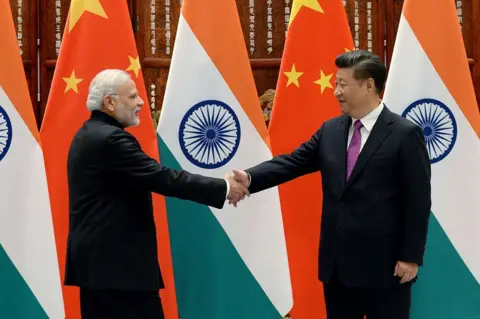In South Africa, the relationship between two dominant political entities, the African National Congress (ANC) and the Democratic Alliance (DA), can be likened to a troubled marriage, filled with tension yet unwilling to separate due to fear of political backlash. Since the inception of the Government of National Unity (GNU) last year following elections that left the ANC without a parliamentary majority for the first time, cracks in the coalition have begun to show.
A year into this coalition, smiles have turned into pointed exchanges between President Cyril Ramaphosa of the ANC and DA leader John Steenhuisen, particularly evident after their joint appearance in the Oval Office with US President Donald Trump. The meeting aimed to counter misinformation about land issues in South Africa, with Steenhuisen reinforcing the ANC-DA partnership’s value amidst their ongoing struggles.
Political analysts suggest that while the arrangement allows for a middle ground governing approach, fundamental ideological differences remain unresolved. This coalition was largely welcomed by the business community, as both parties perceived external threats from radical groups aiming to disrupt the economic status quo. However, mounting conflicts are seen as an indicator that the two parties may not be able to navigate their divergent views effectively.
Recent events, including the sacking of DA deputy minister Andrew Whitfield by Ramaphosa, have intensified frustration within the DA, leading Steenhuisen to voice concerns over procedural transparency and the efficacy of the government’s economic plans. The DA has voiced worries that the ANC's push for land expropriation without compensation could derail trade relations with pivotal partners, including the United States.
Despite their internal divisions, both parties appear hesitant to dissolve their alliance, with several political figures suggesting that such a move would invite voter discontent. The landscape of South Africa's politics remains uncertain as both parties engage in tactical maneuvering to maintain their positions leading into the upcoming local elections. Underpinned by communication breakdowns and a lack of cohesive strategies, the sentiments of dissatisfaction are palpable among party ranks.
As frustrations mount, the future of the GNU is in jeopardy—with members of the DA hinting at a no-confidence motion against Ramaphosa, an indication that the alliance is far from stable. With neither party willing to act as the initiator of a separation, political analysts warn that the children of this uncooperative partnership—namely the South African populace—could be left to suffer the consequences of their prolonged disagreements.




















